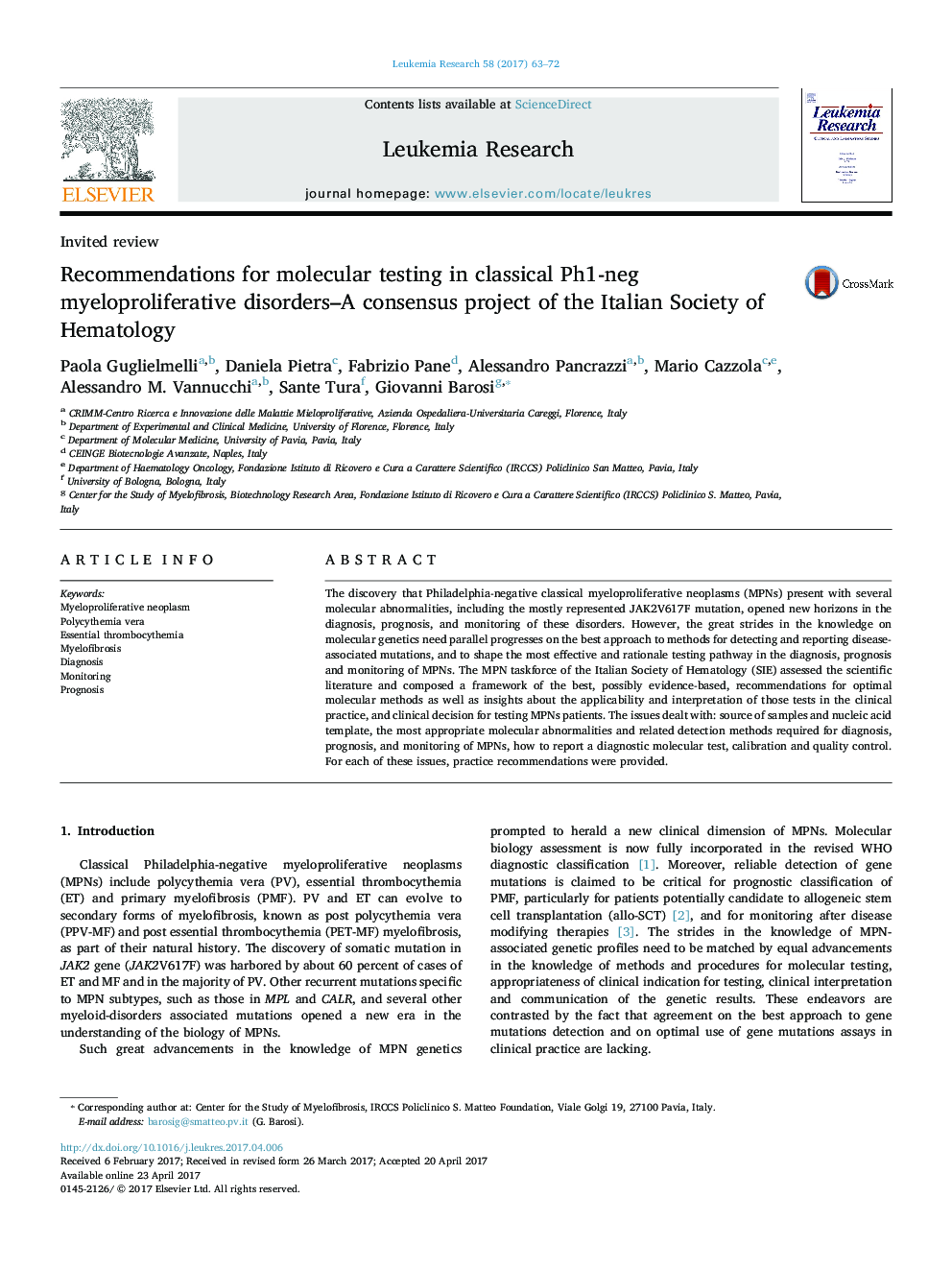| Article ID | Journal | Published Year | Pages | File Type |
|---|---|---|---|---|
| 5527782 | Leukemia Research | 2017 | 10 Pages |
â¢Recommendations for molecular testing in myeloproliferative neoplasms are proposed.â¢Methods required for diagnosis, prognosis, and monitoring are recommended.â¢How to report a diagnostic molecular test are also recommended.â¢Calibration and quality control issues are tackled.
The discovery that Philadelphia-negative classical myeloproliferative neoplasms (MPNs) present with several molecular abnormalities, including the mostly represented JAK2V617F mutation, opened new horizons in the diagnosis, prognosis, and monitoring of these disorders. However, the great strides in the knowledge on molecular genetics need parallel progresses on the best approach to methods for detecting and reporting disease-associated mutations, and to shape the most effective and rationale testing pathway in the diagnosis, prognosis and monitoring of MPNs. The MPN taskforce of the Italian Society of Hematology (SIE) assessed the scientific literature and composed a framework of the best, possibly evidence-based, recommendations for optimal molecular methods as well as insights about the applicability and interpretation of those tests in the clinical practice, and clinical decision for testing MPNs patients. The issues dealt with: source of samples and nucleic acid template, the most appropriate molecular abnormalities and related detection methods required for diagnosis, prognosis, and monitoring of MPNs, how to report a diagnostic molecular test, calibration and quality control. For each of these issues, practice recommendations were provided.
